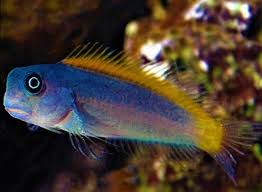
In Chinese mythology, dragons hold a central place as divine creatures associated with power, wisdom, and natural forces. Unlike their Western counterparts, which are often depicted as menacing beasts, Chinese dragons (龙, lóng) are benevolent and symbolize harmony with nature. These mythical beings are deeply connected to natural elements such as water, fire, earth, wood, and metal, playing crucial roles in the cosmic balance. This article explores the significance of dragons in relation to these elements, their influence in ancient beliefs, and their continued cultural relevance in modern China.
The Dragon in Chinese Mythology
The Chinese dragon is an auspicious creature often depicted as a long, serpentine being with scales, a pair of antler-like horns, whiskers, and clawed feet. Unlike Western dragons, which are typically winged, Chinese dragons are believed to fly without wings, using their mystical abilities. They are considered the rulers of natural forces, particularly water and weather, and they bring prosperity, rainfall, and protection to humanity.
In Chinese folklore, dragons are divided into different types, each with specific attributes:
- Tianlong (天龙) – The celestial dragon that guards the heavens.
- Shenlong (神龙) – The spiritual dragon that controls the weather and brings rain.
- Fucanglong (伏藏龙) – The treasure dragon that protects underground riches.
- Dilong (地龙) – The earth dragon, which governs the rivers and streams.
- Jiaolong (蛟龙) – A dragon of the sea, associated with storms and floods.
- Huanglong (黄龙) – The yellow dragon, symbolizing wisdom and knowledge.
Each of these dragons is linked to natural elements, demonstrating their essential role in balancing the cosmos.
Dragons and the Five Elements in Chinese Philosophy
The concept of the Five Elements (五行, Wuxing)—wood, fire, earth, metal, and water—is fundamental to Chinese philosophy and cosmology. These elements interact in cycles of creation and destruction, influencing all aspects of life, including mythology, medicine, and feng shui. Dragons, as supernatural entities, are believed to embody and manipulate these elements.
1. Water and the Dragon: The Rain Bringer
Water is the element most commonly associated with dragons in Chinese mythology. Shenlong, the rain dragon, governs storms, rivers, and seas. Ancient Chinese farmers worshiped dragons to bring rain and ensure a bountiful harvest. Dragon kings (龙王, Lóng Wáng) were believed to reside in underwater palaces and control the weather, punishing those who disrespected nature by withholding rain or unleashing floods.
2. Fire and the Dragon: The Symbol of Power
Though dragons are primarily linked to water, they also have connections to fire. The fire element represents transformation, passion, and destruction. The red dragon (朱龙, Zhū Lóng) embodies fire and is believed to bring both prosperity and calamity. Fire dragons are seen in legends of volcanic eruptions, and some stories depict dragons breathing flames, though this trait is more common in Western mythology.
3. Earth and the Dragon: Guardians of the Land
The element of earth represents stability and fertility. The earth dragon (地龙, Dì Lóng) is associated with landforms such as mountains, valleys, and underground caverns. Fucanglong, the treasure dragon, is believed to guard precious metals, gems, and sacred knowledge buried deep in the earth. Earth dragons symbolize longevity, protection, and the hidden forces of nature.
4. Wood and the Dragon: Growth and Renewal
Wood is the element of vitality, growth, and creativity. In Chinese tradition, dragons are often linked to trees and forests, especially in feng shui practices where dragon energy (龙气, Lóng Qì) is believed to flow through landscapes like a river of life. The green dragon (青龙, Qīng Lóng) represents wood and is one of the four celestial animals, guarding the east and symbolizing spring and renewal.
5. Metal and the Dragon: Strength and Authority
Metal represents strength, resilience, and order. The golden dragon (金龙, Jīn Lóng) embodies this element, signifying imperial power and divine authority. Chinese emperors were often associated with golden dragons, and the dragon throne (龙椅, Lóng Yǐ) was a symbol of the ruler’s divine right. Metal dragons are also linked to weapons and warrior spirits in mythology.
The Dragon’s Role in Chinese Culture
1. Dragon Symbolism in Feng Shui
In feng shui, dragons are powerful symbols of energy flow and prosperity. The Dragon Vein (龙脉, Lóng Mài) refers to energy currents in the earth, believed to influence landscapes, buildings, and human destiny. Feng shui practitioners place dragon imagery in homes and businesses to attract good fortune and harmony.
2. The Dragon in Festivals and Celebrations
The Dragon Dance (舞龙, Wǔ Lóng) is a traditional performance during the Chinese New Year, performed to drive away evil spirits and invite prosperity. The Dragon Boat Festival (端午节, Duānwǔ Jié), held in honor of Qu Yuan, also features dragon imagery, symbolizing strength and unity.
3. Dragons in Chinese Astrology
The Year of the Dragon in the Chinese zodiac is one of the most auspicious, representing ambition, intelligence, and leadership. People born in this year are believed to possess the qualities of a dragon—charisma, courage, and good fortune.
The Evolution of Dragon Mythology
Over the centuries, dragon mythology has evolved from ancient animistic beliefs to a sophisticated cultural symbol. In modern China, dragons remain an essential part of national identity, appearing in art, architecture, and literature. While ancient emperors used the dragon as a symbol of divine power, today, the dragon represents China’s strength and heritage.
Conclusion
Dragons in Chinese mythology are far more than mythical creatures; they are embodiments of natural elements and cosmic forces. Their association with water, fire, earth, wood, and metal reflects their deep-rooted significance in Chinese philosophy, religion, and culture. From their role as rainmakers and protectors of treasures to their presence in feng shui and festivals, dragons continue to be revered as powerful symbols of balance and prosperity. Even in the modern era, the legacy of the Chinese dragon endures, weaving a timeless connection between mythology and the natural world.

Leave a Reply